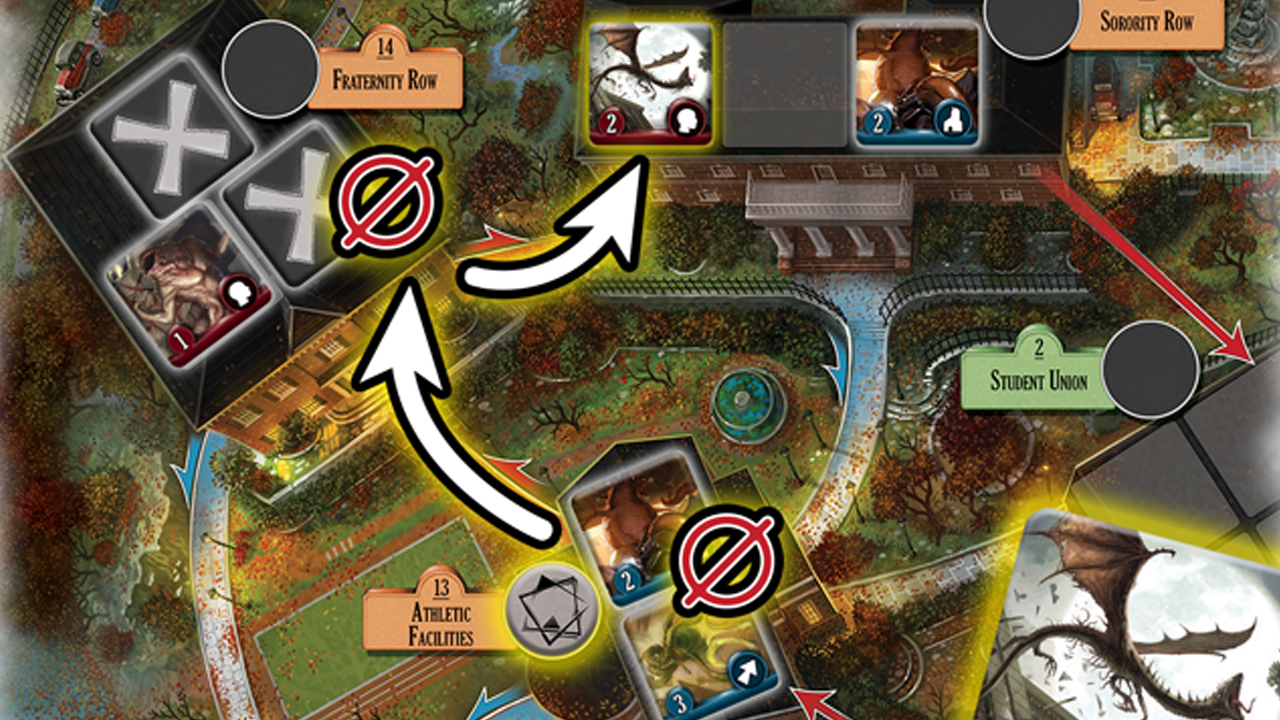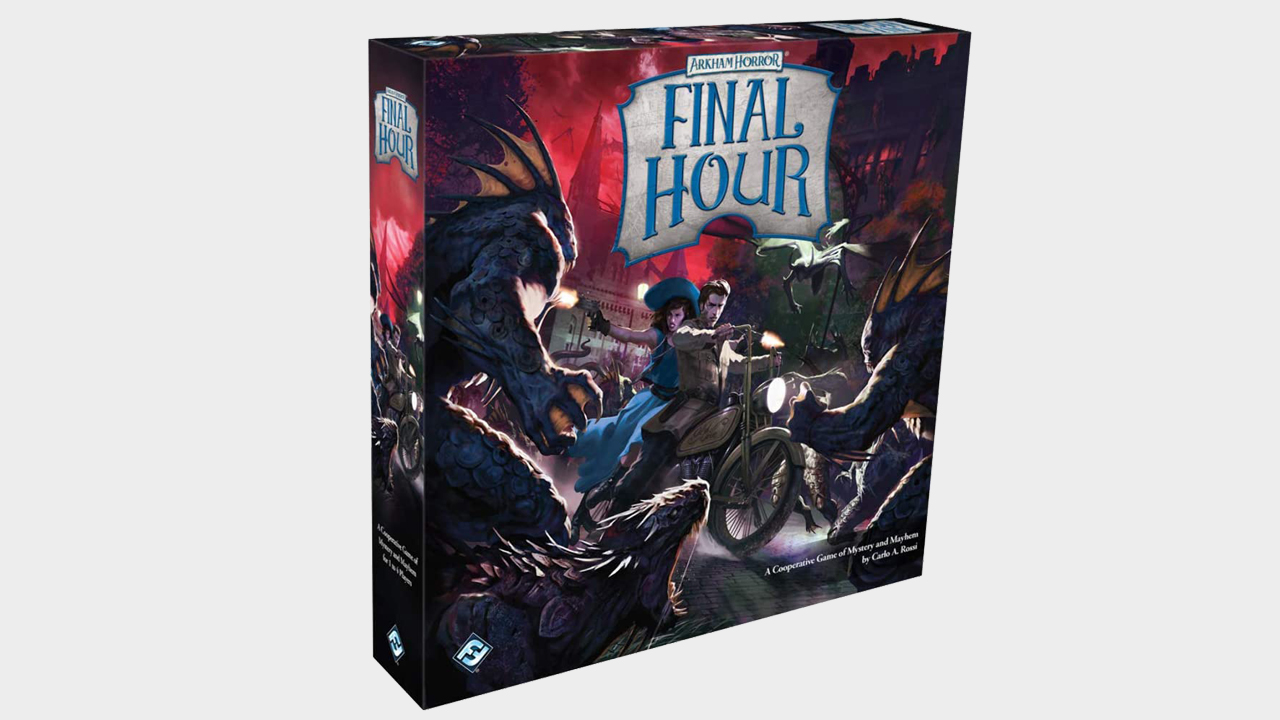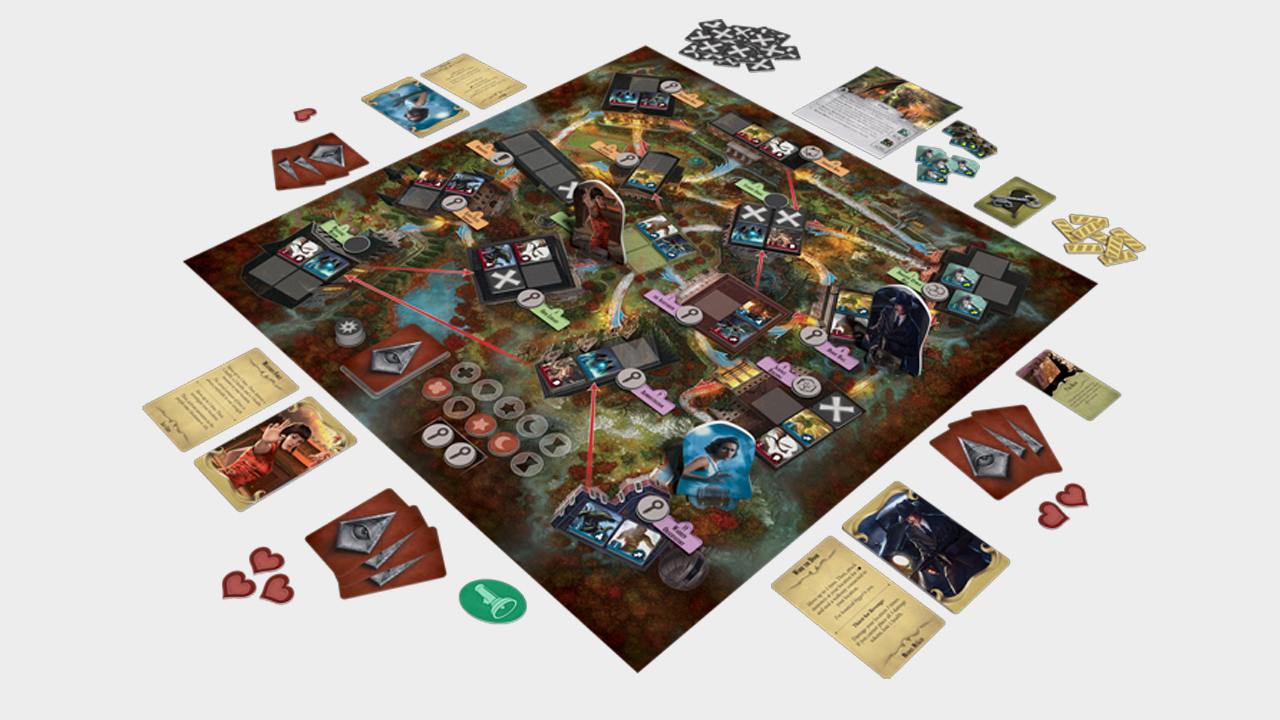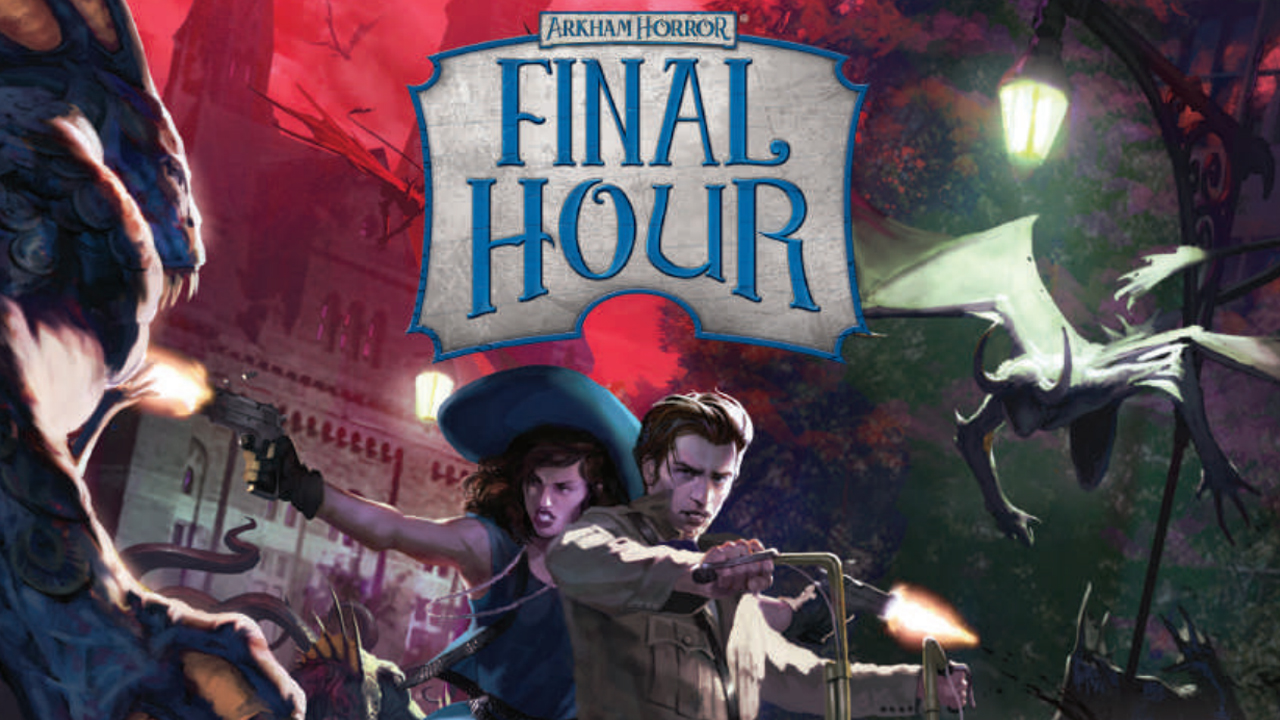GamesRadar+ Verdict
If you can get over its intimidating mechanics, Arkham Horror: Final Hour is an engrossing and complex delight.
Pros
- +
Exciting, last-ditch effort feel
- +
Unique mechanics
- +
Loads of replayability
- +
Filled with tension
Cons
- -
Complicated
- -
Hard to explain
Why you can trust GamesRadar+
In the Arkham Horror: Final Hour board game, it's the end of the world as we know it. A ritual has summoned horrific alien gods from another dimension, and now you've got to reverse the process (all while holding off their minions) before they tear their way into our reality. Sh*t, as they say, just got real.
Fortunately for us, Arkham Horror: Final Hour is more fun than that would imply. It's also unique enough to stand apart from Mansions of Madness, Eldritch Horror, and the various spin-offs the original Arkham spawned. This is a faster, tenser co-op experience that can be completed in 60 minutes or less.

Players: 1 - 4
Difficulty: Hard
Time to set up: 5 - 10 minutes
Time to play: 30 - 60 minutes
Age: 14+
Out of time
Inspired by the fiction of H.P. Lovecraft, Arkham Horror: Final Hour is unique in that the usual race against time to stop cultists from summoning an Ancient One (such as Cthulhu) has already failed. In fact, Earth is mere minutes away from welcoming transdimensional terrors, entities so inconceivable that they'll send you mad if you so much as look at them. As a result, your mission is to reverse the ritual that's bringing those deities here - if you can.
Obviously, it's not an easy task. The game's university setting is crawling with monsters, and more arrive with every passing round. In addition, the ritual is powered by two of ten possible symbols that are randomised each time you play. That means you'll have to hunt down clues in a process of elimination as you fight off hordes of gibbering, clawed minions. This gives Final Hour a whiff of Clue, which is no bad thing; if you're going to draw inspiration from anywhere, why not one of the best classic board games? It's a more layered experience as a result.

It's the same story with your character's actions. These take the form of cards drawn at random, and they're split into two sections - a positive effect at the top (e.g. defeating foes) and a more negative one (like unleashing monsters) at the bottom. The trouble is, those negative actions are the only way of finding clues. If you want to make things better, you'll need to make them worse first.
Having all that to consider heaps on tension, but the real kicker is your time-limit: you've only got eight turns to save the world. If you fail, or the ritual site is overwhelmed, it's curtains. On the plus-side, this allows you to play an entire game in under an hour (quite the departure for the Arkham series).
In short, Final Hour is an engrossing - but somewhat overwhelming - experience. Although it's more accessible than previous Arkham games, I wouldn't recommend it for beginners.
End of Days
That's because your anxiety will only increase thanks to a combat-based juggling act. Much like the Horrified board game, monsters are activated at the end of a turn via your action cards. They'll then attack, move to an adjacent location, or destroy a space. If there's no room for them to move into a location (because all the spaces are occupied or destroyed, for example), they'll simply skip it and go to the next one. This shunts them toward the ritual site. Seeing as you'll lose if they overwhelm it, players must kill those demons or seal paths to halt their advance all while looking for clues. Dislike games full of panicked but memorable Hail Marys? You've been warned.
More specifically, the monsters aren't your only problem. Namely, the Ancient Ones will do everything they can to stop you. The barrier between our world and the dimensions of Cthulu et al are breaking down, so they can directly influence proceedings at the end of each round. How? They'll either add more monsters to the board - which are even deadlier, by the way - subtract your character's health, stop you from communicating with your allies, or something worse. You never know what's going to happen, and that keeps moment-to-moment gameplay exciting while emphasizing how hopelessly outgunned you are. If you've tried The Captain is Dead: Dangerous Planet, you'll feel right at home.

Not being able to discuss your action cards before playing them adds another intriguing curve ball. Instead, you must communicate via numbered 'priority' cards that everyone puts down one at a time. Players that use the lowest number can activate their action's positive effect (including combat or repairing a space), while anyone with a high number is stuck with the negative equivalent. It's a clever, subtle system; you can advertise your intentions or respond to what your allies are putting down, all without saying a word.
However, it's also a bit complicated. You see, priority numbers are crucial to winning the game. Each one has an icon in the corner, and victory relies on matching them to the ritual symbols. That means you can't use priority numbers on a whim, thus influencing what actions you can take… and potentially making things harder for yourself in the process. It's a cool concept, but it does take some getting used to.
If you can manage it, though, you won't be disappointed. Final Hour is eminently replayable thanks to a range of difficulties and Ancient Ones with different abilities. In addition, it deftly balances complexity, speed, and tension; I can't stress how clever and out-of-left-field this Arkham Horror is. It's nail-biting stuff, and one of the best co-operative board games out there.

I've been writing about games in one form or another since 2012, and now manage GamesRadar+'s tabletop gaming and toy coverage. You'll find my grubby paws on everything from board game reviews to the latest Lego news.



